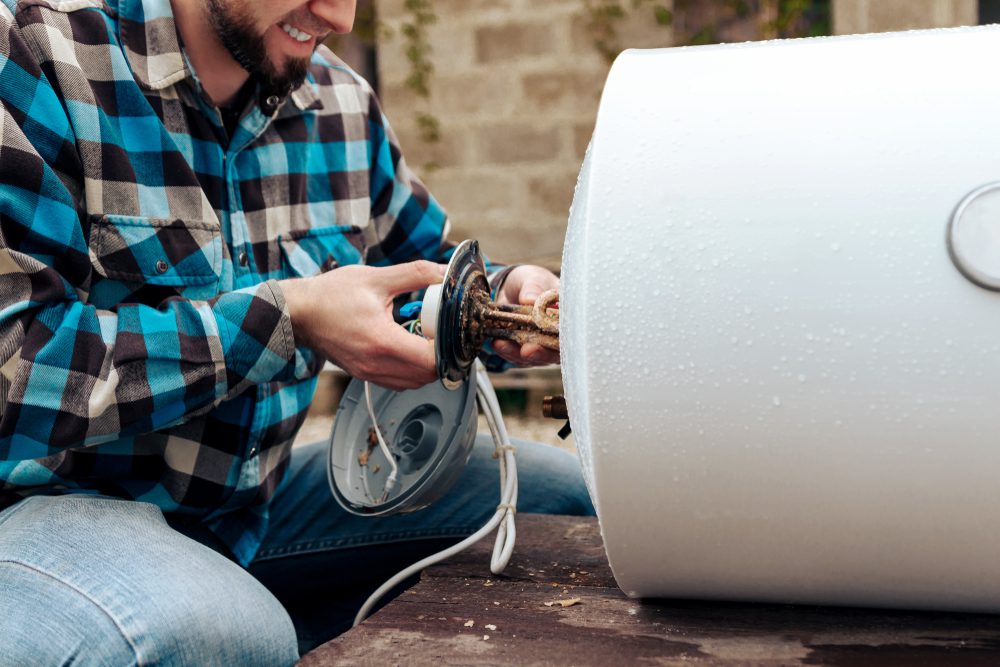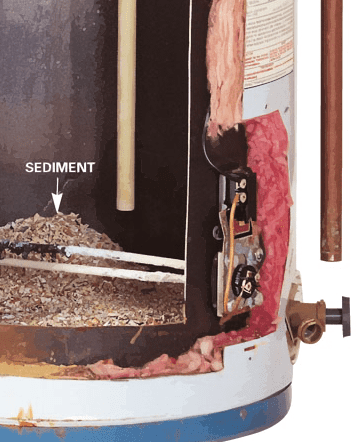Handling the Typical Water Heater Crisis Scenarios
Handling the Typical Water Heater Crisis Scenarios
Blog Article
Just how do you feel with regards to The Importance of Water Heater Maintenance?

A water heater is among the most vital fundamental appliances that can be discovered in a home. With hot water heater, you do not require to experience the stress and anxiety of home heating water by hand whenever there is a requirement to wash, wash, or the recipes. However, there is always an opportunity that your water heater would break down as with the majority of mechanical devices.
It is essential to keep in mind any type of little breakdown and tackle it rapidly prior to points get out of hand. Many times, your water heater begins to malfunction when there is an accumulation of debris as a result of continual usage. As a safety measure, regular flushing of your water heater is recommended to avoid debris buildup and avoid useful failing.
Typical hot water heater emergency situations and exactly how to take care of them
Inadequate warm water
It may be that the water heating system can not support the warm water need for your house. You could upgrade your water heating system to one with a bigger capability.
Changing water temperature.
Your water heater might start creating water of various temperatures usually ice hot or cool warm. In this situation, the first thing you do is to make certain that the temperature level is readied to the preferred degree. If after doing this, the water temperature maintains changing throughout showers or various other activities, you might have a malfunctioning thermostat. There may be a need to replace either the heating or the thermostat unit of your hot water heater.
Leaky water heater tank.
A dripping storage tank could be an indicator of deterioration. It could create damages to the floor, wall surface as well as electrical devices around it. You can also go to danger of having your house swamped. In this circumstance, you should shut off your water heater, enable it to cool, and meticulously look for the source of the issue. At times, all you need to do is to tighten up a couple of screws or pipeline connections in cases of minor leakages. However if this doesn't function and also the leakage persists, you could require to use the services of a technician for an ideal replacement.
Stained or smelly water
When this happens, you need to understand if the problem is from the storage tank or the water resource. If there is no amusing smell when you run cold water, then you are certain that it is your water heater that is defective. The odiferous water can be triggered by corrosion or the build-up of bacteria or debris in the water heater storage tank. When you discover this, you can try flushing out your tank or changing the anode if the issue lingers. The function of the anode is to clean germs from your storage tank. Because the anode pole substitute calls for a detailed expertise of your water furnace, you will certainly need the help of an expert.
Verdict
Some homeowners disregard little warning and also minor faults in their hot water heater system. This only brings about more damage and a possible complete failure of your device. You need to manage your hot water heater faults as soon as they come up to prevent more costs and unneeded emergency difficulties.
With water heating systems, you do not need to go with the stress of heating water by hand every time there is a requirement to take a bath, do the laundry, or the dishes. It might be that the water heating unit can not sustain the warm water demand for your house. Your water heating system can begin producing water of various temperature levels typically ice scalding or cold hot. If there is no amusing smell when you run cool water, after that you are certain that it is your water heating unit that is defective. The smelly water can be caused by corrosion or the build-up of microorganisms or sediments in the water heating unit tank.
Why Is My Water Heater Leaking?
When a water heater bursts in a home, it is a shocking event, not to mention a messy one, and it could potentially cause a lot of expensive damage. If your hot water heater burst, you’re probably wondering why this happens and what to do next.
In general, the basic reason why hot water heaters burst is that there is corrosion within the tank, which can lead to the tank bursting at its seams. Unfortunately, there are several possible underlying causes that can contribute to water heater explosions, and it’s not always apparent which one is the culprit.
Sometimes there are risk factors or warning signs that could indicate a water heater explosion is imminent, but not always. In order to understand the risk factors that could contribute to a water heater exploding, it’s important first to understand the type of water heater that you have in your home.
What Are The Common Causes of Water Heater Leaks?
In general, it's a good idea to call a emergency plumbing company if you have any questions about the cause of your water heater leak. The most frequent reasons why water heaters leak are:
Drain valve
The drain valve is used to empty the tank during maintenance visits and replacements by plumbers and homeowners. The drain valve is also utilized by homeowners when cleaning the tank is required. Over time, the valve becomes loose, allowing water to flow through. Leaks from the bottom of the valve, on the other hand, suggest that the component isn't waterproof. This situation calls for the installation of a new drain valve. Homeowners may replace this themselves, but it's better to get advice from a professional plumber before you do so.
Too much pressure
Water heaters are affected by naturally occurring water pressure, just like any other plumbing component. The hot water that generates steam and fills the vacant space causes pressure in water heaters. When the steam has no where to go, the pressure becomes too high. Any crack in the heater allows water to escape, relieving some of the pressure. When the water temperature is set too high or when water enters the system at large pressures, the heater's pressure rises.

We had been made aware of that write-up on Is Your Water Heater Leaking? through an acquaintance on our other web property. Sharing is good. One never knows, you may just be helping someone out. I am grateful for your time. Don't forget to check up our website back soon.
Plumbing crisis? Contact our experts. Report this page